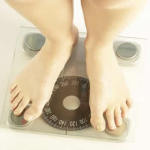Does Metabolism Increase During Period?
If you are a woman, your hormones play a key role in your menstrual period. Even during period, some women can experience discomfort symptoms that can be intense enough to interfere with their daily activities. How about metabolism? Some believe that it tend to increase during period, is it true or only a myth?
 When you have a weight loss program, you need to pay extra attention to your metabolism. This variable is also essential to keep your weight off in long term. That’s why it is important to keep your metabolism optimal all the time.
When you have a weight loss program, you need to pay extra attention to your metabolism. This variable is also essential to keep your weight off in long term. That’s why it is important to keep your metabolism optimal all the time.
But what actually is it? It is a medical term used to describe the process in which your body changes & converts what you drink and eat into calories for energy. This mechanism can involve lots of biochemical processes.
In the process of this converting, the calories derived from foods that you eat are combined with O2 (oxygen) to produce and release the energy. This is continuously going in your life, even though when you are at rest.
At rest, the cells of the body still need plenty of energy to keep functioning as well. The body needs energy to run other hidden functions, too. These include for blood circulation, breathing, regeneration of cells (including for repairing cells), and managing hormone levels.
The amount of energy used to perform some of these body basic functions is called the basal metabolic rate. This takes about 70 percent of total calories that your body burn per day! This suggests that your basal metabolic rate can be very essential to control your body weight!
And for metabolic rate, it is a term used for the rate of how many calories you burn a day (over 24 hours).
Some major factors that can affect your metabolism include:
- The composition of the body. More muscles you gain mean the greater rate of metabolism you have.
- Gender! Typically, men burn more calories at rest than women. The reason is due to women have less muscles and more body fat than men.
- The age! Some people say that the decreased metabolic rate is a part of aging. This is reasonable since you tend to gain more fat and lose more muscles as you age. But this doesn’t mean that there is nothing you can do to cope with this issue. See also weight loss tips if you are older than 30 in here!
In addition to these factors, the level of your physical activity and thermogenesis (the mechanism of food processing) can have an effect, too.
More physical activity you have means greater amount of calories you can burn. Being an active individual is also great to maintain your basal metabolic rate in long term.
How about thermogenesis? This food processing includes digesting foods, absorbing the nutrients, and transporting. Even storing the excess foods you eat can take some calories, too. All of these processes can burn about 100 – 800 calories.
The metabolic rate varies not for person to person, but also day to day in the same individual. The fluctuation of hormones is one of reasons why it can vary.
And your metabolism can be affected by your menstrual cycle. For instance, it tends to increase drastically in the days of ovulation.
According to a study, basal metabolic rate varies with menstrual period. It decreases in the days of menstruation and goes to the lowest level about a week before the day of your ovulation. Then it gradually increases in the last days of follicular phase or a few days before ovulation.
So, your metabolism is getting slower during period and tends to increase higher than usual in the luteal phase (this lasts from the day of ovulation to the day of when you notice your first menstrual bleeding).
Doing exercise in your luteal phase may help burn your calories faster. But be careful, you may burn more calories, but there are also more calories to burn – because you may have increased appetite and are more prone to cravings, too.
For this reason, one important checklist you need to remember is that you need to pay extra attention about your adherence in following your diet about 1-2 weeks before your period (the time of when your metabolic rate increases but you will also have an increase in appetite).



